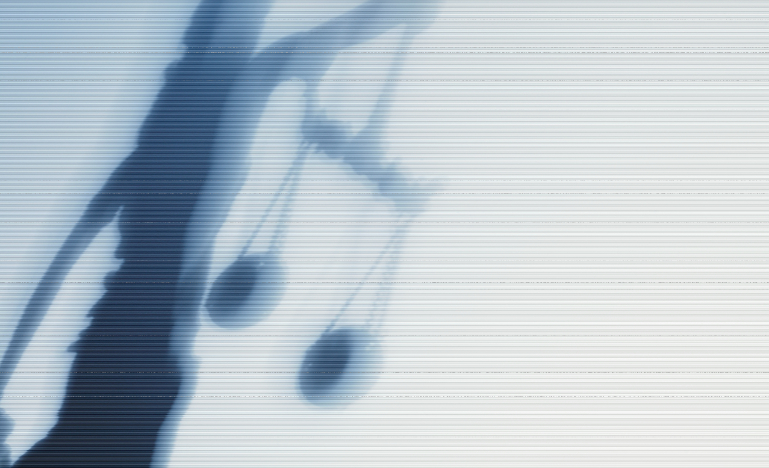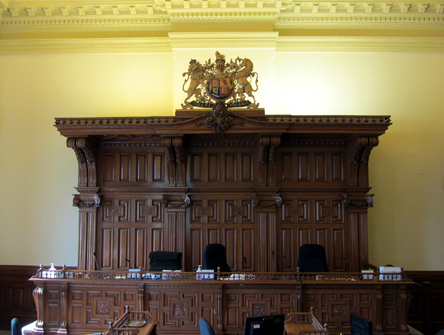What's up with all the secret trials?
They offend our sense of justice, but defenders of in-camera proceedings say they happen for a reason.

In the past year, several "secret trials" have come to light, first in Quebec, followed by British Columbia, and now Ontario. While media outlets and their lawyers have expressed grave concern about them, others in the profession, particularly from the criminal bar, are more serene.
In June 2022, Chief Justice of Canada Richard Wagner emphasized the fundamental importance of the open court principle in Canadian democracy. He also noted that he was awaiting the Quebec Court of Appeal's decision, particularly regarding demands that details of that trial be disclosed.
Kevin Westell, Principal at Pender Litigation in Vancouver and Chair of the CBA's Criminal Justice Section, argues that in-camera proceedings serve valid purposes.
"In my experience, courts take the open court principle very seriously, and to the extent that exceptions are made, it is usually in circumstances where somebody's life and safety would be placed directly in jeopardy by having a matter heard on the merits in open court," says Westell who has seen his share of in-camera proceedings as counsel for an accused, or a witness. "Unfortunately, the criminal justice system involves regulating and interacting with elements of society that are exceedingly dangerous."
He explains that there are situations where having witnesses come to court may only be feasible if exceptions to the open court principle are implemented to ensure the safety of all participants.
"I understand that can be offensive to the public because they are on the outside trying to look in, but that's the whole point," Westell says. If the alternative is to let someone alleged to have committed serious crimes go free, he says, then most Canadians would agree that in-camera proceedings are lesser evil.
Consider the increasingly complex organized crime-related matters, says Westell -- situations where the courts are forced to rely on confidential informants or undercover operators with a public interest in protecting the ways and means they conduct their tradecraft.
It isn't a matter of convenience, says Westell, but of necessity where public proceedings put somebody's life at risk or compromise police work.
Eric Neubauer, of Neubauer Law and a Toronto director for the Criminal Lawyers' Association, says the number of secret trials reported in the media may not reflect how many are going on.
"There appears to be a recent trend to provide some transparency and accountability by releasing redacted versions of court records and court decisions, but it may be that other courts are completely banning the publication of these proceedings on the urging of the parties, potentially keeping not only the content of the decision but its existence secret as well," Neubauer says. "There isn't a consistent practice or protocol that is being followed when the courts are dealing with a case like this."
Few considerations will trump the open court principle because of its fundamental importance to the administration of justice, but certain privileges, especially for confidential informants, are among them.
"The police heavily rely on people providing information in exchange for promises of anonymity," Neubauer says, adding that the Supreme Court of Canada has ruled that confidential informant privilege is evaluated case-by-case. In the rare circumstances where it could be waived, certain protections would be put into place to avoid breaching it any more than necessary.
Neubauer emphasizes that this privilege isn't weighed against the public's right to trial information. It must remain a blanket privilege to ensure that potential future informants are confident that their identities will always be protected and that no future court will reveal their information.
In cases involving heavily redacted documents, he says the assertion of confidential informant privilege is key. Decisions in such cases aim to strike a delicate balance between transparency and safeguarding the hallowed and sacrosanct privilege the Supreme Court has said courts uphold and protect. Neubauer explains that when a decision is redacted. Though it may not fully satisfy the reader, it indicates that the case has taken place, privilege has been asserted, and some information has been disclosed while safeguarding the privilege.
Westell says that courts cannot reasonably offer greater transparency in these trials. Judges and legal counsel are hardly making decisions based on their whims but rather adhering to the demands of their professional roles. Judges are acutely aware of the public's right to information, but that right cannot supersede the safety of individuals, he says, especially as law enforcement has limited resources to provide round-the-clock protection for individuals who testify in high-stakes matters.
"I understand why that is unsatisfactory to someone who is skeptical if institutions or the state or of things that happen behind closed doors," says Neubauer. "It's that skepticism that creates the pressure that undergirds the extent to which the open court principle is upheld wherever possible. But people need to come to grips with the idea that people's personal safety cannot be compromised for the open court principle."
With the Quebec case heading to the Supreme Court of Canada, Neubauer expects several public legal organizations will seek leave to intervene.
In a sense, the reports of the secret trials are a positive development, he says. In past years, these cases would have been "almost entirely sealed and there would have been no way for the public or the media to even really know that they had occurred."
These cases raise the question of whether the recent surge in such incidents is a coincidence, a new trend, or simply the unveiling of a longstanding but previously undisclosed issue, Neubauer says. "That is a matter that we need to get to the bottom of, because no matter how unsatisfying these decisions, and no matter how incomplete they are, it's far better that we know that they exist so that we can count them accurate rather than they are not released at all and decided in the dark."
Neubauer wonders whether there is consistency across the country and if provinces without released information are conducting similar trials to those observed in Ontario, Quebec, and BC.
"If the Court of Appeal is releasing this type of decision now, why is that and how many have there been previously and where are those decisions and what did they look like?" Neubauer asks. He also questions who has the authority to determine which information might expose an informant's identity—law enforcement or the court. "Is there an adversarial process involved in making that determination? Who decides what gets redacted?"
"These decisions raise more questions than they answer."


